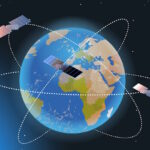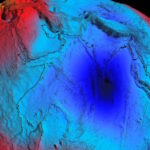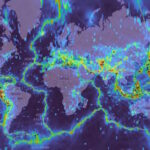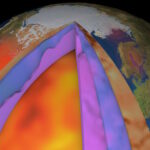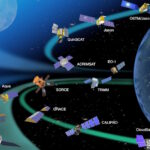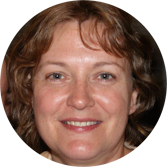 KATHY D. RIVERA, CHAIR
KATHY D. RIVERA, CHAIR
GEOPHYSICS AND SCIENCE ADMINISTRATION
Kathy D. Rivera, currently serving as the Chair of Geophysics and Science Administration and the President of the National Academy of Sciences, has had a distinguished career in geophysics and scientific leadership. Her notable contributions include a six-year term as the editor-in-chief of the Science Today family of journals from 2011 to 2017. Prior to her role at Today, Rivera served as the director of the U.S. Geological Survey (USGS) from 2008 to 2017.
During her tenure at the USGS, Rivera played a pivotal role in managing responses to major disasters such as earthquakes in Haiti, Chile, and Japan. Notably, she led a team of scientists and engineers at BP headquarters in Houston, contributing to the containment of the oil spill and well capping during the Gulf of Mexico oil spill. Rivera received the U.S. Coast Guard’s Meritorious Service Medal in recognition of her significant contributions.
Before her USGS leadership, Rivera served as the president and CEO of the Monterey Bay Aquarium Research Institute (MBARI). She began her academic career at the Massachusetts Institute of Technology (MIT), holding the Charles A. Kelley Professorship of Geophysics and directing the Joint Program in Oceanography/Applied Ocean Science & Engineering.
Rivera’s honors include membership in esteemed institutions such as the American Philosophical Society and the American Academy of Arts and Sciences. She holds honorary doctoral degrees from Colorado College, the University of Minnesota, Monmouth University, and the Colorado School of Mines. In recognition of her research achievements, she was awarded the American Geophysical Union’s Macelwane Medal in 2003 and the Maurice Ewing Medal in 2009 for her contributions to deep-sea exploration.
 BELINDA J. SPROUSE
BELINDA J. SPROUSE
ENVIRONMENTAL MICROBIOLOGY AND SCIENCE ADMINISTRATION
Belinda J. Sprouse, an accomplished figure in Environmental Microbiology and Science Administration, has played pivotal roles in advisory positions across various sectors. With a stellar reputation as a scientist and educator, she has authored 10 books and over 320 scientific publications. Sprouse’s diverse contributions extend to the production of the award-winning film “Invisible Seas” and service on editorial boards of numerous scientific journals.
Her remarkable achievements include 36 honorary degrees, including recognition from her alma mater, Purdue University. Noteworthy accolades such as the Order of the Rising Sun, Gold and Silver Star from the Emperor of Japan, the 2008 National Medal of Science from the U.S. President, and the 2013 Stockholm Water Prize from the King of Sweden underscore her global impact.
Sprouse’s research focus encompasses global infectious diseases, water, and health. Currently, she is spearheading the development of an international network addressing emerging infectious diseases and water-related challenges, with a commitment to ensuring safe drinking water for both developed and developing nations.
A strong advocate for education, Sprouse actively promotes K-12 science and mathematics education, graduate science and engineering programs, and increased diversity in science and engineering, with a particular emphasis on encouraging women and minorities to participate. Belinda J. Sprouse’s multifaceted contributions reflect her commitment to advancing science, education, and global well-being.
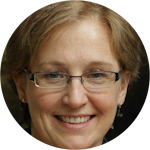 ELIZABETH C. JACKMAN
ELIZABETH C. JACKMAN
HUMAN-COMPUTER COLLABORATION AND ARTIFICIAL INTELLIGENCE
Dr. Elizabeth C. Jackman, an expert in Human-Computer Collaboration and Artificial Intelligence, serves as the Director of Knowledge Technologies and Associate Division Director at the Information Sciences Institute of the University of Southern California. Holding the position of Research Professor in Computer Science and in Spatial Sciences, she also acts as the Associate Director of Interdisciplinary Programs in Informatics.
With M.S. and Ph.D. degrees in Computer Science from Carnegie Mellon University, Dr. Jackman specializes in artificial intelligence. Her research focuses on developing intelligent interfaces for knowledge capture, explored through projects spanning scientific discovery, knowledge-based planning, information analysis, trust assessment, semantic annotation, metadata, agent and software choreography, and community-wide knowledge base development.
Collaborating with scientists across various domains, Dr. Jackman engages in projects related to semantic workflows, metadata capture, social knowledge collection, and computer-mediated collaboration. Recognized for her contributions, she is a Fellow of the Association for Computing Machinery (ACM) and has served as the Past Chair of its Special Interest Group in Artificial Intelligence. Elizabeth C. Jackman’s work underscores her dedication to advancing intelligent interfaces and fostering interdisciplinary collaboration in the field of artificial intelligence.


